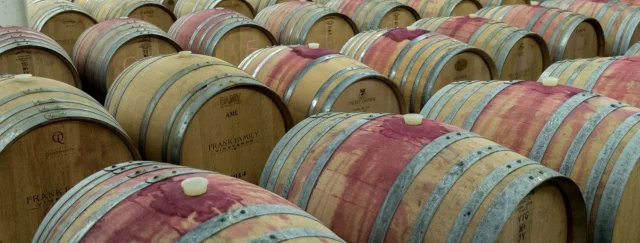
It’s every wine enthusiast’s worst nightmare. The thought that keeps them up at night. The dream that causes them to wake in the middle of the night, tossing and turning in a cold sweat. The thought of finally getting around to indulging in that extra special bottle, planning the perfect night, deciding who to share it with and in what setting. Uncorking the bottle and being met by a wave of sharp, damp vinegar-like aromas, followed by an overpowering nut-like odour when poured into their wine glasses. Collectors brave enough, or those so committed to their bottle after saving it for so many years, may opt to sample a small sip just to confirm their worst fears. Their prized wine has spoiled beyond consumption. Their taste buds, expecting the familiar notes of their favourite vintage, were instead met with either a chemical flavour or, as expected, essentially a mouthful of vinegar. So now, it’s on to the enthusiast's blame game, who to point the finger at? The vineyard? The producer? The distributor? The retailer? Or, perish the thought, themselves? All of these parties can, of course, be at fault when it comes to spoiled wine. However, in this instance, it helps to look a little closer to home first. From grape to store every hand that comes into contact with your wine is, generally, very well practised. The seasoned vintner to the upmarket wine merchant has years of experience to back up their craft. So, the simple answer to the question of what causes wine to spoil is probably, you!
Nearly everyone is aware that wine can be awfully particular as to how it is stored, particularly in regard to temperature. Wine storage temperature can be a tricky game. Above all, wine should be stored in cool conditions with as consistent a temperature as can be managed. It is the changes in temperature that do the real damage to the quality of a wine. Most wines are best stored at between 11°C and 14°C so if that range is optimal to store and age wine, what temperatures are sure to cause spoiling? Some wines can be stored for serving at around 15°C to 16°C. But stray anywhere past 20°C and the wine cannot be stored at these temperatures for any considerable duration. For perspective around 25°C and above and the wine is beginning to cook. Meaning leaving your wine in a hot car can be a costly affair. At the other end of the spectrum, some sparkling wines can be served at temperatures as low as 5°C. But long-term storage at these, or lower, temperatures can also be detrimental to the end product.
Again, as with temperature, it is the extremes of humidity and the constant changes in the ambient humidity that have the worst effects on end quality. Around 60% humidity is generally agreed to be optimal as too high or too low humidity will spoil a wine. With humidity too high the risk of mould growth is much greater and with too low humidity and the cork is at risk of drying out and allowing oxygen to spoil the wine.
As tempting as it might be to stand your bottles up in your collection to show off their prestigious and varied labels. This is really, really ill-advised behaviour that must be avoided. And any racks, or stands, that accommodate an upright style of storage really ought not to be on the market today. Because just this small error can rapidly cause the cork to dry out and again, as with poor humidity, potentially allow oxygen in. Bottles must be stored horizontally to allow the wine to keep the cork moist. Ideally on vibration-eliminating shelves, behind UV light-eliminating glass.
We have now established that our collections are best stored between 11°C and 14°C, at 60% humidity, with low to no vibration or UV light. And if all these conditions are met then our wine will keep as long as possible. When all these conditions are met wine will keep well past its printed expiration date. Bottled white wines and rosés will keep for 1-2 years past expiration. Bottled red wine and non-vintage sparkling wines will keep for 2-4 years longer. Vintage sparkling wines can last a further 5-10 years past expiration. And fortified wines can outlast their printed expiration by decades.
Added bonus, when the correct conditions are met, even open bottles of wine can last longer than you’d imagine. Sparkling wine when open and stored correctly can last 1-2 days. Whites and rosés 3-5 days. Reds 3-6 days. And finally, the hardy fortified wines can last 1-3 weeks provided they are stored correctly. Where, then, is this magical, highly consistent wine-storing land where wine can keep for as long as possible?
The answer is clear. For the very best wine storage conditions and for ultimate peace of mind. You need to buy a wine cooler. It is quite simply the one-stop solution to avoid the spoiling of wine, both unopened and opened for as long as possible. A wine cooler eclipses the classic wine rack in terms of highly tailored storage conditions. Taking into account, of course, temperature but also humidity, vibration control, UV light exposure and the all-important horizontal storage of bottles to ensure constant contact of wine with cork to prevent the cork from drying out and becoming porous, permitting unwanted oxidation of your precious fermented grape juice. Head over to the Products tab to shop our full range of freestanding and integrated wine coolers to meet all your requirements.